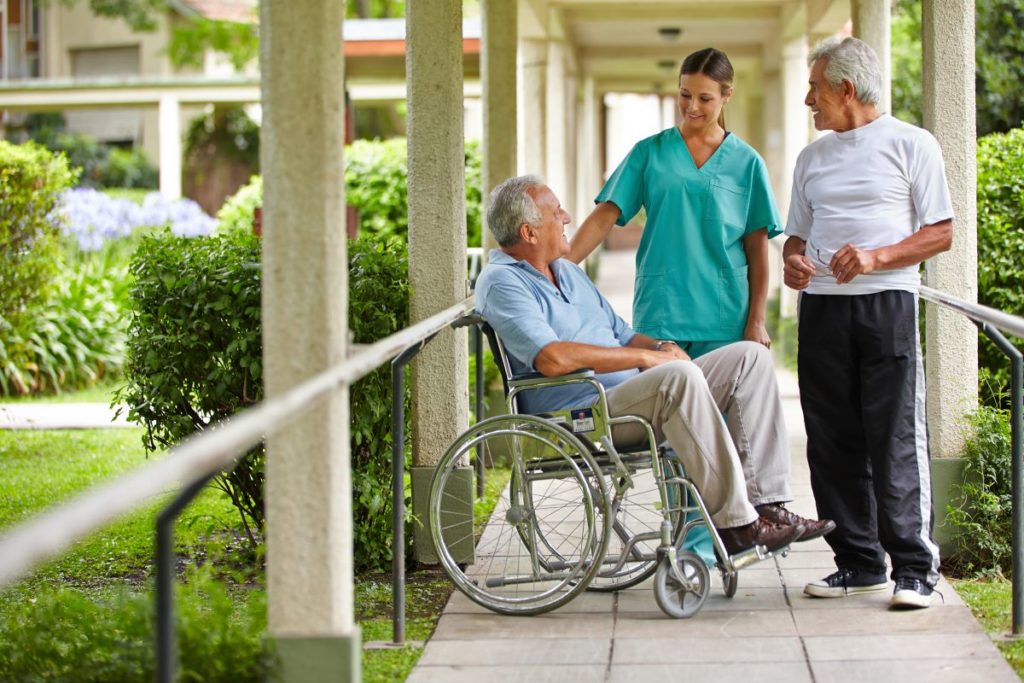Many senior adults are moved into a nursing home when they start to get frail. A nursing home has everything they need, such as 24/7 medical monitoring, assistance in daily activities, and opportunities to socialize. At a glance, the facility offers more than an elderly’s own abode.
But despite this, a number of senior adults still prefer to age in place. They would rather stay in an environment they’re familiar with, even if they’re alone. Thankfully, in-home care service is an option for the elderly who chooses this lifestyle, allowing them to receive healthcare and assistance from the comfort of their own spaces.
Considering the nature of home care, what if it’s actually healthier for senior adults? If you can grow old in a place you’re used to, and one that’s your own, wouldn’t you be happier? What’s more, your children can grandchildren can visit anytime, and sleepover. They definitely couldn’t do that in a nursing home.
Aging in Place Maintains Their Independence
The ultimate goal of aging in place is maintaining a certain level of independence and avoiding the need to move into a nursing home. However, it doesn’t necessarily mean that they’ll stay in their current home. They might still need to move into another place, especially if their current home has full of stairs and other safety hazards. But if they install modifications, such as stairlifts, grab bars in the toilets, and such, a senior adult can remain in their current dwelling.
If they’re not receiving in-home care yet, their place should be near the public transit and a healthcare facility. If not, they should at least live in or near a family member’s home. You can build them an in-law suite or granny house so that they can have their own space. That also counts as aging in place.
It’s important for seniors aging in place to maintain social connections. In fact, it should be a priority, along with their health, as their golden years progress. Hence, if you’d allow your parents to age in place, ensure that they won’t get lonely. Independence can only do so much in maintaining their good mental and physical health.
Home Care Services Provide Companionship and Daily Assistance
In time, even healthy seniors will need help in daily activities, such as bathing, cooking, and cleaning the house. With home care services, they can receive all the assistance they need in those activities. They’ll even be more comfortable, because they’re bathing in their own bathrooms and sleeping in their own beds. Plus, they have their caregiver all to themselves, so they can also form a bond, and thus avoid loneliness.
Even if a senior still has good mobility, in-home care may be necessary, because their deteriorating cognitive function may lead them to stop caring for themselves. If you observe the following behaviors in your aging parents, start seeking an in-home caregiver for them:
- Not showering, bathing, brushing their teeth, or basically neglecting their hygiene
- Forget taking their medications
- No longer performing house chores
- Forget paying their bills
- Not cooking or forgetting to turn off the stove after cooking
- Having accidents around their home
- Unable to drive anymore, or often violate traffic rules
Age-related diseases, like arthritis, osteoporosis, dementia, and heart problems, needless to say, are other reasons to seek an in-home caregiver for your aging parents. But you don’t need to wait for them to grow weak before considering in-home care. If your instincts tell you that your parents will soon need help, consult an expert in elderly care to be sure.

Aging in Place Slows Down the Progress of Memory Loss
Memory loss is a scary prospect for many as they age. And if they move into a senior care facility, the progress of their declining memory may speed up. On the contrary, if they age in place, they can keep their sharp memory for longer because they’re free to invite people over and have them stay for as long as they desire.
A study has found that seniors with “frequent” social activity experience a 70% reduction in cognitive decline. Their familiarity with their physical environment also helps in further delaying their memory loss. Smells, for example, are one of the strongest memory facilitators, and a senior’s own home has full of familiar smells. In fact, studies have shown that in the early stages of dementia, smells increase memory recall. Therefore, aging in place helps senior adults keep their sharp memory, regardless if dementia is inevitable or not.
In-home care also allows seniors to find new hobbies, such as crafting, scrapbooking, reading, or gardening. Those activities will also help enhance their memory and cognitive function. So if your parents are upset with the idea of having to live in a nursing home, listen to their reasons, and give aging in place the chance it deserves.


